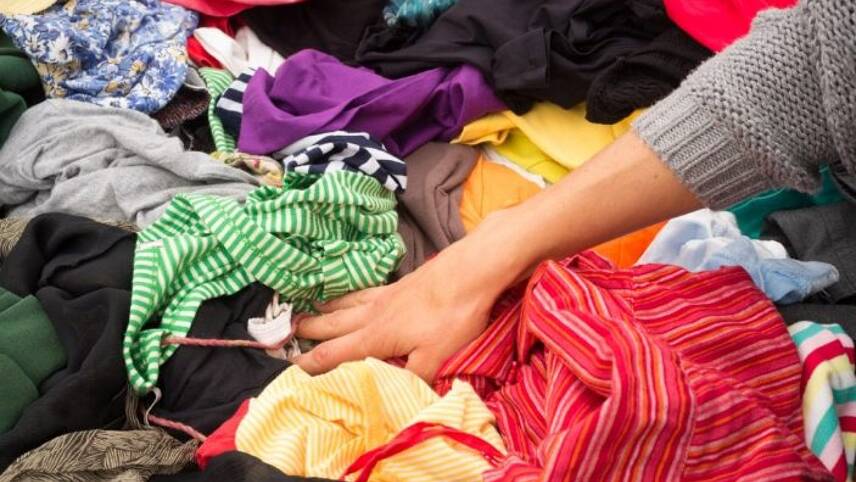Register for free and continue reading
Join our growing army of changemakers and get unlimited access to our premium content

According to the Ellen Macarthur Foundation
Called the Earth Logic Action Plan, the framework urges businesses across the global fashion sector to “radically transform” their models in a way which places nature ahead of short-term financial gain.
The architects of the plan, Professors Kate Fletcher and Mathilda Tham, claim it is aligned with the Intergovernmental Panel on Climate Change’s (IPCC) research on global warming and resource consumption. Leading actors in the fashion sector are backing the framework, including Fashion Revolution co-founder Orsola de Castro and Helen Storey MBE.
Using the IPCC’s research, the plan sets out why the fashion sector should reduce its use of virgin resources by 75% by 2030. Such a move, it says, is “radical” and “would impact our lives substantially” – but would help to prevent interconnected environmental crises.
In order to make this transformation, the Plan offers advice on changing business processes, forging new collaborations and managing the financial and social implications of “growing out of growth”. It also offers advice on the processes needed to maintain and upscale fashion with Earth Logic at its core, including policymaker engagement.
Lucy Siegle, who has been researching and reporting on fashion’s environmental impacts for more than a decade, said the need to act on the Plan is “stark”.
Siegle said: “The authors of this report make very clear, for the fashion sector to meet the global deadline set by the IPCC and a resource reduction imperative, we will have to leave behind some logics and systems that may have served some parts of our community well in the past.
“The idea behind earth logic is radical but beautifully simple and actionable. A new fashion industry which follows its thinking would be a great improvement on the one we have today.”
Decade of (circular) change
The publication of the Plan comes shortly after Positive Luxury – which supports fashion brands as well as luxury firms in the beverage, hospitality and leisure spaces – declared the 2020s a “decade of change” for sustainable business action, and 2020 itself the “year of nature”.
Speaking exclusively to edie, Positive Luxury co-founder and chief executive Daniela Verde Nieto told of how the report should urge businesses, in fashion and beyond, to act in line with environmental science, seeking collaboration with NGOs to do so.
The fashion sector’s involvement in the climate and nature crises, as well as the fact that humanity is now consuming almost twice as many natural resources as the planet can produce annually, is not to be underestimated.
On the former, fashion is estimated to account for around 10% of global emissions annually – more than international shipping and aviation combined. It has also been strongly linked to deforestation and water pollution. As for resources, fashion is widely considered one of the most linear industries in the world. Between 80-120 billion garments and 20+ billion pairs of shoes are manufactured annually, most of which lack dedicated infrastructure and policy support for reuse or recycling.
Business action to tackle these issues is emerging, in the form both of individual schemes by big-name brands and by joint initiatives such as the UN’s Alliance for Sustainable Fashion and Kering’s Fashion Pact. SMEs have also been able to move, in many cases, further and faster than high street incumbents. The question now is one of scaling up in line with global requirements.
In a positive announcement in this space, John Lewis Partnership has confirmed plans to test its fashion buy-back service at five additional stores, following early success at its Oxford location.
Under the scheme, first piloted in October 2019, customers are given £3 in loyalty card points for each “pre-loved” adult garment from brands stocked by the department store chain – up to a maximum of three items per day. John Lewis Partnership will then divert the clothing from landfill by reselling, donating to charity or sending heavily used items for use as rags or other industrial material.
As of today (16 March), the service is being offered at John Lewis shops in Southampton, Birmingham, Cheadle, Cambridge and Bluewater, and Waitrose in Cheadle Hulme. The scheme has also been made a permanent fixture at Oxford’s John Lewis.
Sarah George


Please login or Register to leave a comment.